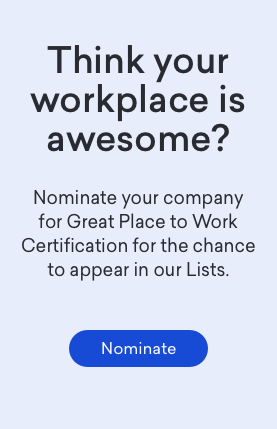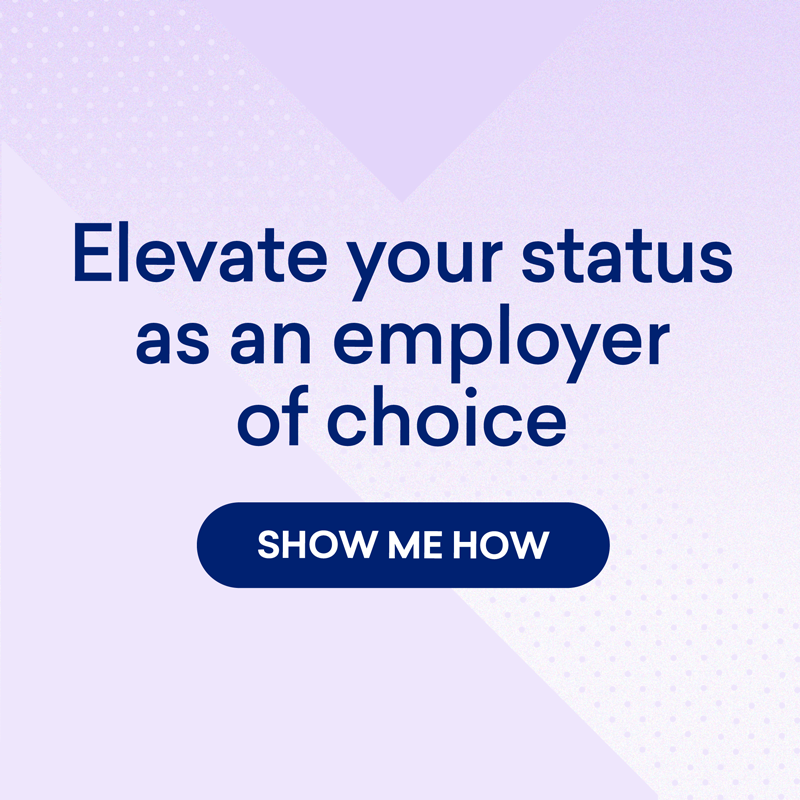
Employees balancing the demands of career and family are hardly outliers. The Census Bureau estimates nearly 65 million Americans have children under 18 at home, and most of those parents work. Employers risk losing substantial resources in training, talent and institutional knowledge if they don't meet the needs of the mothers and fathers in their teams.
Great Place to Work recently found some valuable insight to that end while ranking the 2016 Best Workplaces for Parents. Among our findings: Substantial gaps persist between men and women; and child-centered benefits, while valuable, aren't everything to working moms and dads.
Don't leave moms behind
We surveyed 120,000 working parents. The leading companies enjoyed environments where employees' overall assessment of the workplace varied little between men and women, with and without children. Among co-workers at companies that didn't make the Best Workplaces, though, fathers scored their overall experience a full 7.7 percentage points higher than mothers, who also rated their workplaces lower than non-parents.

Source: Great Place to Work®
Unfortunately, generational data suggest that discrepancy isn't improving over time. Across all companies certified by Great Place to Work, mothers' overall impression of the workplace was nearly identical among Baby Boomers, Gen Xers and Millennials. The gap between moms and dads shrunk somewhat between older and younger cohorts, but only because younger fathers scored their companies slightly worse than their older colleagues. As more Millennials have children, this suggests employers will need to improve their support for mothers and fathers alike to retain talent in the years ahead.
Work still matters for working parents
Employees with kids aren't one-dimensional. The biggest workplace experience gaps between mothers and their colleagues, for example, are in areas related to promotions, fairness and how much management trusts employees. During discussions about parent-friendly programs, it's important not to lose sight of the fact that parents also want to be treated the same as their peers. That means an equal shot at promotions, training and an accurate perception of their work by managers. CA Technologies, one of the Best Workplaces for Parents, excels in this area, according to one mother who works there: "One other vital benefit is the support I get from my manager and peers. My manager provides me with opportunity to learn and grow, giving me guidance and support as I need it. I am paid very well and rewarded for the work I do. I am truly valued as an employee, and for that I have extreme loyalty to CA.”
Bolster benefits (but don't stop there)
The Best Workplaces stand out, in part, because of their generous perks specific to parents. Among the winners:
- Paid maternity leave averaged 63 days
- Paid paternity leave averaged 30 days
- On-site childcare was available across locations at 25 percent of these companies, and 36 percent helped with the cost of childcare off-site. Also, 30 percent of these organizations reimbursed childcare expenses related to work travel.
These numbers are particularly exceptional given that only one in five large U.S. corporations offers paid parental leave at all; and the U.S. remains the only developed country without a nationwide requirement for paid leave after birth.
Nonetheless, analysis of the Best Workplaces for Parents showed that benefits like these weren't actually the biggest reasons behind parents' affection for their companies. Our research found that questions related to work-life balance and time off were actually among the least predictive in determining parents' intention to stay with their companies over the long term. The same turned out to be true for non-parents. The takeaway for employers is that, while PTO and benefits focused on work-life balance enhance employee experience across the board, they aren't the only thing necessary to support working parents.
In order for companies to put their best teams on the playing field, they need to attract and retain talented people from the vast population of parents in the workforce. Doing so means acknowledging the unique needs of colleagues with children while cultivating a high level of trust in the workplace for all.
Explore all of our Best Workplaces lists here.











